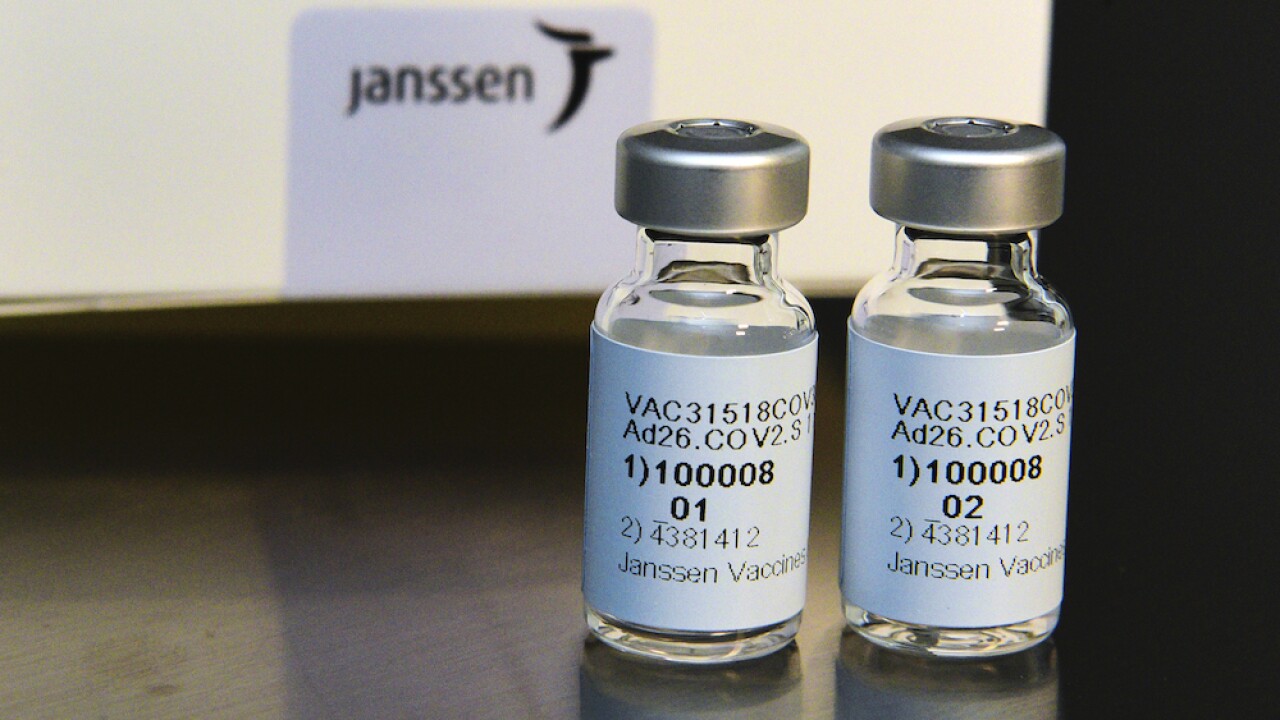More cases of a rare clotting reaction to the Johnson & Johnson COVID-19 vaccine have been identified since the single-shot dose was paused earlier this month.
During a hearing Friday with a CDC advisory panel about whether the pause should be lifted, a doctor with the CDC said the number of dangerous blood clots associated with the vaccine had increased to 15. Initially, there were 6 reported cases.
The reaction remains extremely rare. The 15 cases of blood clots is among the nearly 8 million Johnson & Johnson COVID-19 vaccine shots given in this country.
Dr. Tom Shimabukuro said of the 15 confirmed blood clots with low platelet counts, 12 of them resulted in a clot in veins near the brain, called “cerebral venous sinus thrombosis.”
All 15 cases occurred in women; most were in their 30s, although the age range of patients was 18 to 59. Three women have died from the blood clots.
Symptoms, including headaches, were reported about 1-2 weeks following vaccination, Shimabukuro told the panel.
“We will certainly continue our enhanced surveillance for this,” Shimabukuro said.
The Advisory Committee on Immunization Practices is a panel made up of experts in immunizations and makes recommendations to the Centers for Disease Control and Prevention about a wide range of vaccines.
Following the FDA and CDC April 13 recommended pause on the Johnson & Johnson vaccine, the committee delayed a decision last week to gather more information about the blood clots and other risks and benefits of the vaccine.
They are meeting Friday to consider lifting the pause on Johnson & Johnson vaccine, and whether certain people should not receive the vaccine.


